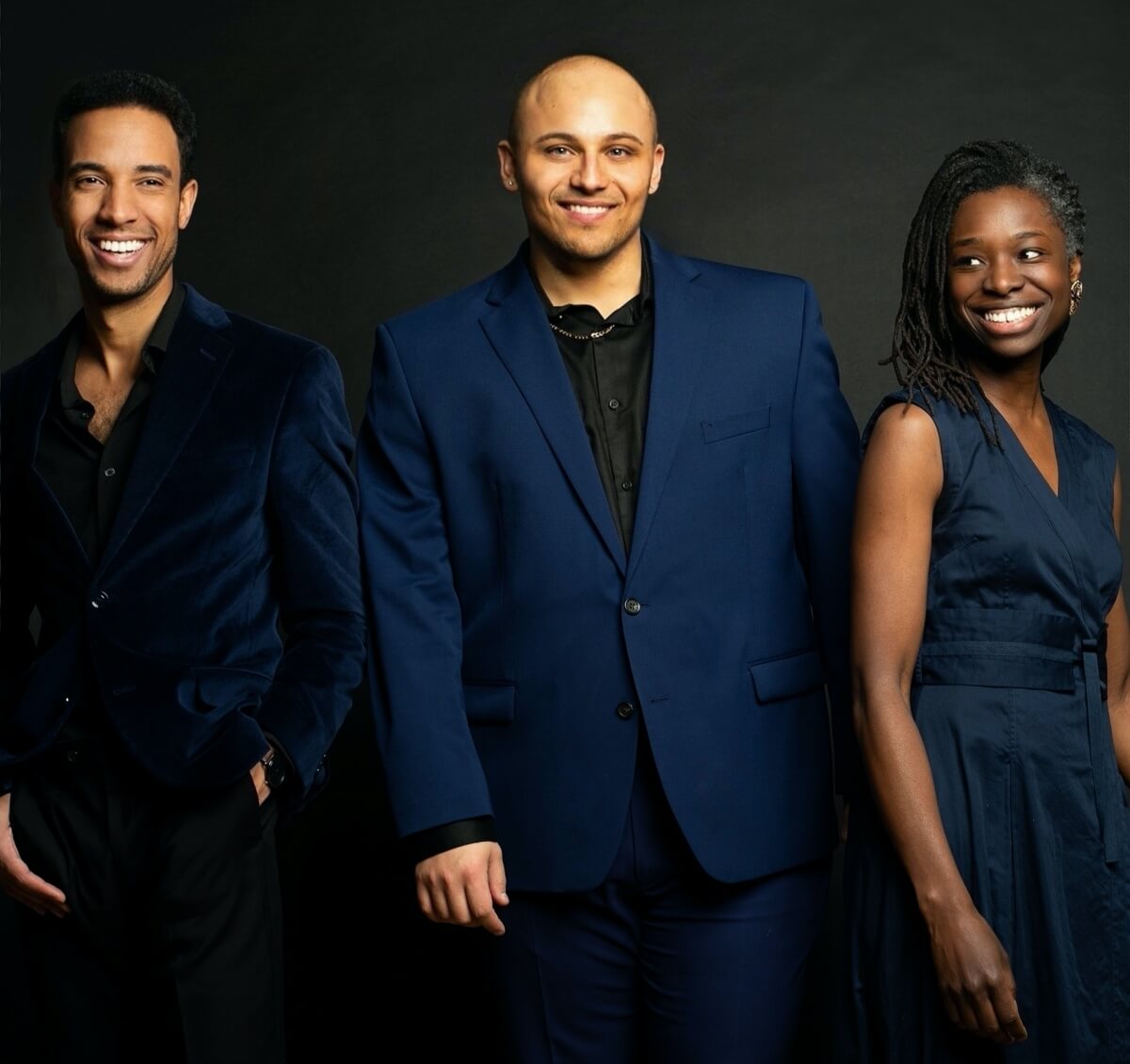
Portia White began her singing career at the age of six in her native Truro, Nova Scotia, and went on to become the first Black Canadian singer to gain an international reputation. The Canadian Opera Company’s new production, Aportia Chryptych, tells her story with a dynamic vision.
The new Black opera uses a combination of spoken word, rap, hip-hop, folk songs, and RnB along with traditional opera repertoire in a collision that looks to break through the barriers between genres, as well as artistic and cultural communities.
“What a poetic justice to share Portia’s story in the art form that rejected her in her lifetime,” says HAUI, librettist and director in statement. “And, in sharing this, to be presented by the largest opera company in Canada…talk about justice!”
Contralto Portia White
Born in 1911 in Truro, Nova Scotia, Portia was drawn to music early in life, singing in the church choir under her mother’s direction at age six. Her success is as much a tribute to her determination as it is to her talent. She struggled against the racism of the time which limited her opportunities.
The young singer was so determined to become a professional vocalist that she would walk 16 km every week to her music lessons. She began training as a teacher, and worked as a schoolteacher in Black Nova Scotia communities during the 1930s.
At the same time, she was training her voice, first as a mezzo-soprano, at the Halifax Conservatory of Music. She won the Helen Kennedy Silver Cup in 1935, 1937 and 1938 at the Halifax Music Festival. With a scholarship from the Halifax Ladies’ Musical Club, she continued to study at the Halifax Conservatory of Music in 1939, where she made the switch to contralto.
After a few recitals in the Maritimes, Portia made her formal debut the Eaton Auditorium in Toronto on November 7, 1941. She was 30. Perseverance led to international tours, and her recital as the first Canadian to perform at Town Hall in NYC in 1944 was highly acclaimed.
The Nova Scotia Talent Trust was established in 1944 specifically for White, so that she could focus on a professional career. She returned to perform at Town Hall in 1944 and 1945. She signed with a prominent agency and toured North America extensively.
She carved out a career, touring the concert halls and opera houses of North America and Europe to critical and audience acclaim. While ill health cut her career short, she made occasional returns to the stage, including a performance for Queen Elizabeth II and Prince Philip at Charlottetown’s Confederation Centre of the Arts in October 1964. Her final performance took place in July 1967 in Ottawa.
Reviewers of the day declared her voice to be one of the finest of the 20th century, her memory, however, has largely been forgotten, something the opera looks to rectify.
Portia was named a “person of national historic significance” by the Government of Canada in 1995.
For opening night on June 14, audience members are encouraged to wear white in tribute to the late singer.

The Opera
The date is February 13th, 1968, the day of Portia White’s death. She’s being tended to by her mother and sister, and her family sings her a song. Portia sees an apparition, and passes into the BARDO, a crossroads between life and death.
She becomes not Portia White, but the Black women who inhabit her: Portia’s Spirit, Portia’s Body, and Portia’s Soul — the Portia Triptych.
With the spirit, she relives the key moments of her history, and wrestles with the question of whether the reputation we leave behind is worth more than the life we’ve lived.
“One thing that’s important for audiences to know is that this opera is not a biopic,” HAUI explains. “The story begins at the end of Portia’s life, as she’s immediately thrust into the spirit realm where she’s fractured into her body, her soul, and her spirit. And it ends up being a navigation of the intermediate realm, and how Portia must learn to let go of her earthly bonds in the hopes of ascension.”
The opera is sung in English, Creole, and Joual
The Creatives
Composer & Conductor Sean Mayes
Toronto-born, Mayes holds degrees in music, education, and music direction from McGill University and the University of Surrey. Currently based in New York City, Sean Mayes is a conductor, music director, orchestrator, arranger, composer, author, and educator. His work in multiple genres has been performed across North America and Europe.
He is conductor for two Tony Award-winning Broadway productions, the new MJ: The Musical and Hadestown, and works frequently around the world, including the award-winning 2019 Canadian production of The Color Purple.
Librettist & Director HAUI
Award-winning mixed media artist HAUI defies categorization, with a body of work that incorporates theatre, opera, dance, film, and visual arts. His work often focuses on revealing pieces forgotten to history, and social justice issues. He has worked with leading organizations such as the CBC, APTN, The Stratford Festival, and many others.
“It’s so important for us to uplift Canadian figures,” says HAUI. “In the opera, we say Portia’s name over 100 times — and I’ve done that deliberately, so that we don’t forget her. I hope that people take away from this that we never forget her again.”
Cast
Portia Body: Neema Bickersteth
Soprano, dancer, and creator Neema Bickersteth also serves as dramaturge for this production. Born and raised in Alberta to parents from Sierra Leone, she has developed a career singing in North America and Europe in a wide variety of roles. Recent prominent engagements include the title role in Scott Joplin’s Treemonisha — A Musical Reimagining, produced by Volcano at the Luminato Festival, and the lead role in The Ritual of Breath is the Rite to Resist for Hopkins Center/Stanford Live.
Portia Spirit: Adrienne Danrich
Soprano/writer/poet/composer/educator Adrienne Danrich is based in New York City. As a vocalist she is a Spinto Soprano, and garnered acclaim, along with a Midwest EMMY, for This Little Light of Mine: The Stories of Marian Anderson and Leontyne Price, a show she created as well as performed in. With a variety of roles in her repertoire, she has performed with opera companies and orchestras across the US.
Portia Soul: SATE
Toronto vocalist and songwriter SATE, aka Saidah Baba Talibah, built a reputation based on her dynamic live shows. She has performed her original music in Canada, the US, and in Europe, both on tour and in prominent festivals.
Jimmy: Henos Girma
Toronto-based treble Henos Girma is currently studying at St. Michael’s Choir School. He portrays Portia’s son, Jimmie.
- Find more details about in-person performances June 14, 15 & 16, and tickets, and/or register for a FREE livestream that will take place on June 15 at 2 p.m. [HERE].
Are you looking to promote an event? Have a news tip? Need to know the best events happening this weekend? Send us a note.
#LUDWIGVAN
Get the daily arts news straight to your inbox.
Sign up for the Ludwig Van Toronto e-Blast! — local classical music and opera news straight to your inbox HERE.
- PREVIEW | SUMMER OPERA LYRIC THEATRE Presents Handel’s Xerxes, Mozart’s Idomeneo & Puccini’a La Boheme July 26 To August 4 - July 26, 2024
- PREVIEW | YENSA Festival V.2 Offers Black Flames Performances & Other Ways To Celebrate Black Women In Dance - July 25, 2024
- PREVIEW | Canadian Talent Conspicuous In The Met: Live In HD 2024-25 Season - July 25, 2024



